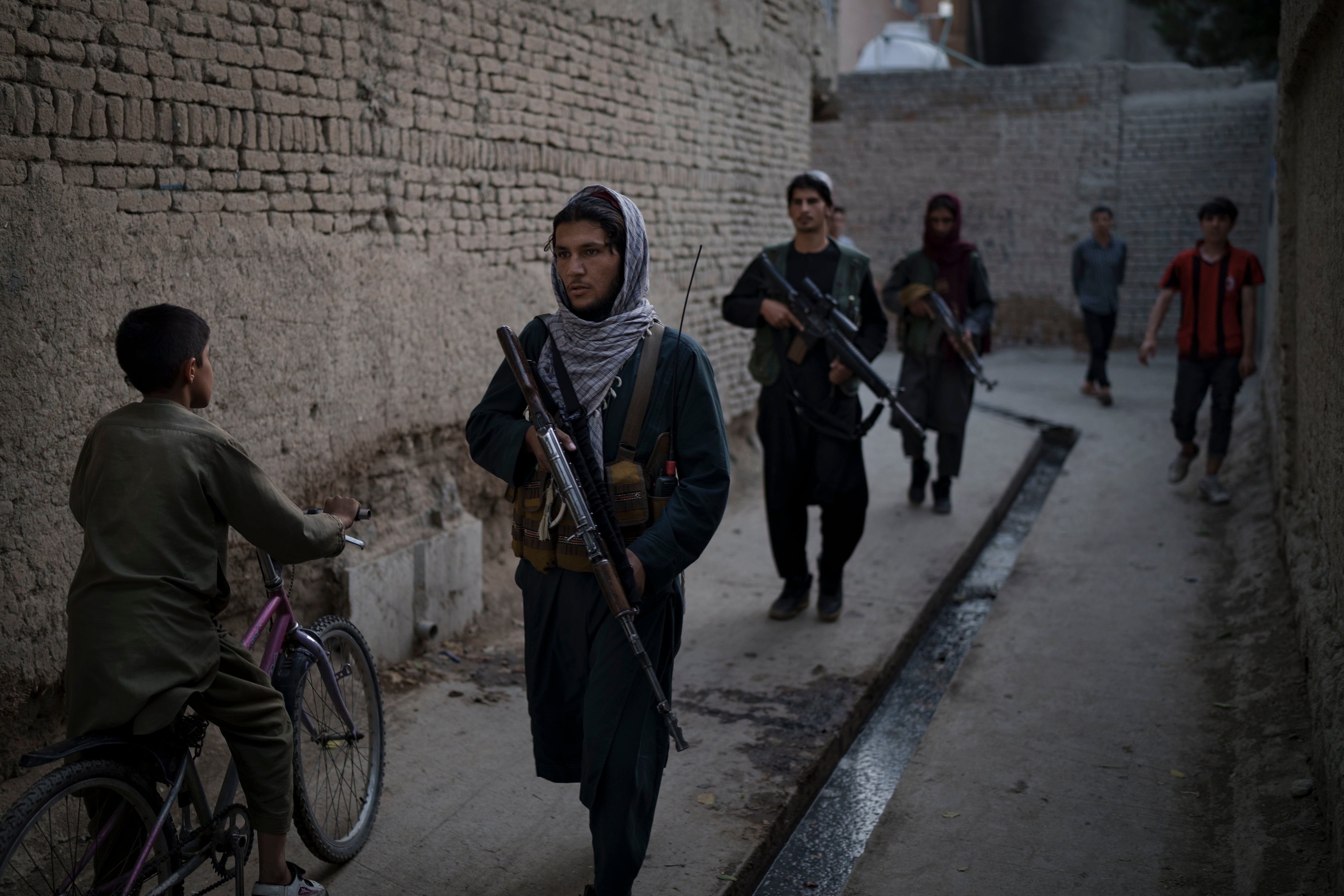Taliban massacred 13 members of Shia minority group in single incident, Amnesty says
Taliban denies allegations, calls Amnesty report ‘one-sided’

The Taliban killed 13 people from the ethnic Hazara community, including a teenage girl, in a single massacre after its takeover of Afghanistan in August, rights group Amnesty International has said.
The killings took place in the village of Kahor in Daykundi province in central Afghanistan on 30 August, two weeks after the militants took control of the Afghan capital Kabul. Eleven victims were surrendered members of the Afghan national security forces, while two, including a 17-year-old girl, were civilians.
The Hazaras are Afghanistan’s third-largest ethnic group and make up around nine per cent of the 36 million population. They have historically been targeted in Sunni-majority Afghanistan for belonging to the minority Shia sect of Islam.
Calling it a “war crime”, the rights group cited eyewitness testimony and said that the militant group extrajudicially executed nine of the security forces members after they surrendered. The surrendered men were reportedly taken to a nearby river basin and executed.
The Taliban reportedly took control of Daykundi province on 14 August, when 34 former soldiers sought refuge in Khidir district. The soldiers, who had government military equipment and weaponry with them, had agreed to surrender to the militants.
But on 30 August, at least 300 Taliban fighters arrived in a convoy close to Dahani Qul village, where the former soldiers and their families were staying. While the families attempted to evacuate, Talibani fighters caught up with them and opened fire on the crowd, killing the teenager and another civilian.
One former soldier fired back, killing a Taliban fighter and wounding another. Two other soldiers were killed in crossfire, the rights organisation said.
Soon after taking over Afghanistan in August, Taliban leaders told Afghans that they had changed and their new rule would be different from their previous, harsh regime in the late 1990s. During their first rule between 1996 and 2001, the Taliban was known for inflicting a range of brutalities on Afghan citizens, including extrajudicial killings and revenge killings.
Amnesty said that these “cold-blooded executions” were further proof that the Taliban were committing the same horrific abuses they were notorious for earlier.
“They repeatedly violate the rights of those they perceive as their adversaries, even killing those who have already surrendered,” said Agnes Callamard, the secretary-general of Amnesty International. “The Taliban say they are not targeting former employees of the previous government, but these killings contradict such claims. The Taliban must immediately cease these cruel acts of revenge, and ensure employees of the former government and their families can live safely in Afghanistan.”
Amnesty also urged the new Taliban government to make it clear that “such grave violations will not be tolerated, and that those responsible will be prosecuted”.
The Taliban has denied these allegations and called the Amnesty report one-sided.
“This report is one-sided and we call on all international organisations to come and conduct a proper investigation in the field. This is not an acceptable conclusion and is free of transparency,” Qari Saeed Khosti, the Taliban's interior ministry spokesperson, told BBC News.
In September, Sadiqullah Abed, the Taliban-appointed chief of police for Daykundi province, had dismissed reports of the killings. He only admitted that a Taliban fighter had been wounded in an attack in Daykundi, according to Amnesty.
In an earlier report, Amnesty had said that the Taliban had massacred nine members of the Hazara community in Ghazni province in July.
Join our commenting forum
Join thought-provoking conversations, follow other Independent readers and see their replies
Comments
Bookmark popover
Removed from bookmarks